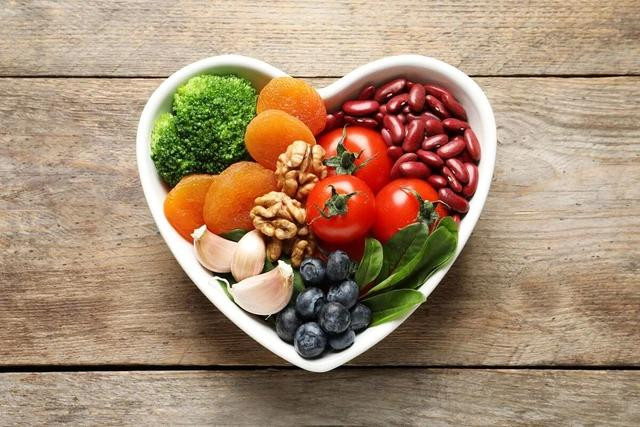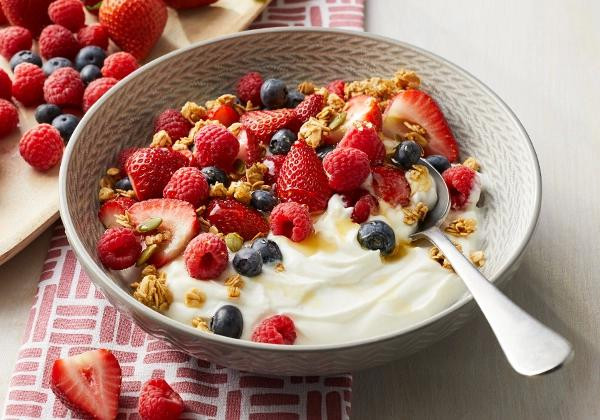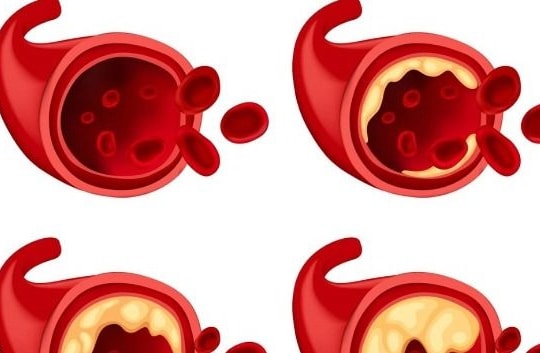The secret of 3 meals a day to help reduce the risk of cardiovascular disease
Choosing the right foods for your meals during the day will help minimize negative pathological mechanisms that can occur in the cardiovascular system in the hours after meals.
1. Eating affects cardiovascular health
The heart plays an important role in ensuring the function of pumping blood throughout the body. When there is a problem in the body that makes it harder for the heart to pump blood, it puts pressure on the artery walls, affecting the heart's function, leading to various health problems. According to Dr. Phan Thi Hong Dieu, Hanoi Medical University, one of the risk factors for cardiovascular disease is an unhealthy diet and harmful use of alcohol and beer... Therefore, some cardiovascular diseases can be prevented by addressing these risk factors.
Research shows that there is a very positive and impactful dietary intervention that has shown significant protection against the key pathological mechanisms of atherosclerosis that lead to cardiovascular disease.
Science has shown that there are several processes that take place when we consume food - digestive, endocrine, neurological, etc. - all of which are important and even contribute to the enjoyment of the meal.
However, there is a physiological response that occurs in the body for a certain period of time after consuming a meal (called the postprandial phase or postprandial response) that has the potential to cause harm to our bodies. These include damage to the endothelial cells lining the artery walls, increased platelets in the blood, oxidation of LDL cholesterol in the blood, and increased inflammation in the cardiovascular system.

All of these risk factors or pathological responses become heightened in the hours after meals contributing to atherosclerosis or the progressive narrowing and hardening of the arteries due to plaque buildup.
Furthermore, our bodies are constantly exposed to the effects of free radicals (oxidants). Free radicals form as a natural by-product of our own metabolism, they are also found in some foods and drinks we consume, and are present in polluted air that damages body tissues.
Fortunately, the body has antioxidants that help neutralize free radicals. Some antioxidants are endogenous (produced by the body), while others are obtained through the diet. If a good balance between free radicals and antioxidants is maintained, your cells will not be damaged and LDL cholesterol will not be oxidized.
2. Diet helps fight against pathological mechanisms that occur in the postprandial period
The physiological responses that occur within hours of eating expose the cardiovascular system to significant attack by these pathological mechanisms. Therefore, it is necessary to intervene at each meal to reduce or prevent these pathological responses and provide protection against heart disease by ensuring and consuming polyphenolic compounds (flavonoids) at each meal.
Targeted and timely consumption of these flavonoid compounds can reduce negative effects while providing healthy components to the diet.

There are over 4,000 flavonoids that have been identified and they are found in fruits, vegetables, nuts, seeds and plant-based beverages such as red wine, green tea and juices. They have powerful properties including the ability to counteract pathological mechanisms that are active in the postprandial period, as well as increasing cardioprotection from a temporary increase in protective HDL cholesterol and endothelial cell function.
Here are various ways to ensure that your meals include flavonoid-rich foods to intervene promptly against pathological postprandial reactions and their harmful effects on our cardiovascular system.
Consuming flavonoid-rich foods and beverages at every meal will help to minimize the negative pathological mechanisms that occur in the cardiovascular system in the hours after a meal. It is truly a timely and targeted intervention to protect your heart and blood vessels from disease.
2.1 Healthy breakfast with berries
Add a cup of berries to your cereal or whatever you eat in the morning. All berries contain different flavonoids that may provide some protection. Drink 100% natural fruit juices such as purple grape juice, pomegranate juice, apple juice, orange juice, or other berry juices. Research has shown that purple grape juice, pomegranate juice, and red wine contain various flavonoids that promote heart health.

2.2 Adding green vegetables and fruits to your heart-healthy lunch
Lunchtime seems to be a time when many people eat in school/work cafeterias or eat out. The food options available at these places are often high in total calories, refined sugars and saturated fats. These factors have all been linked to a greater postprandial response, which can have a negative impact on cardiovascular health. Therefore, it is advisable to eat more vegetables and fruits or take fruit with you to help reduce the impact of postprandial response.
Dr. Phan Thi Hong Dieu said:
Citrus fruits and apples are rich in soluble fiber. Soluble fiber helps lower LDL cholesterol, reduces inflammation, and lowers blood pressure. When soluble fiber enters the small intestine, it works by binding to cholesterol molecules and preventing them from being absorbed into the body.
2.3 Mediterranean diet dinner prevents heart disease
Dinner is a time when many people tend to consume more calories than at other meals of the day. People who follow a Mediterranean lifestyle, which includes a diet rich in vegetables, fruits and whole grains, healthy eating habits such as limiting salt and sugar, and focusing on foods containing healthy fats, have been shown to have a lower risk of heart disease.
Drinking a glass of red wine or purple grape juice or pomegranate juice with dinner has been shown to provide significant cardioprotective benefits against the pathological mechanisms of postprandial response. Several studies have demonstrated that moderate red wine consumption may reduce the risk of heart disease and protect against cognitive decline.
Alcohol consumption in any form can be risky for some individuals and should therefore be avoided. People with diabetes should avoid sugary drinks, as well as natural fruit juices, as part of their efforts to control their blood sugar levels.



